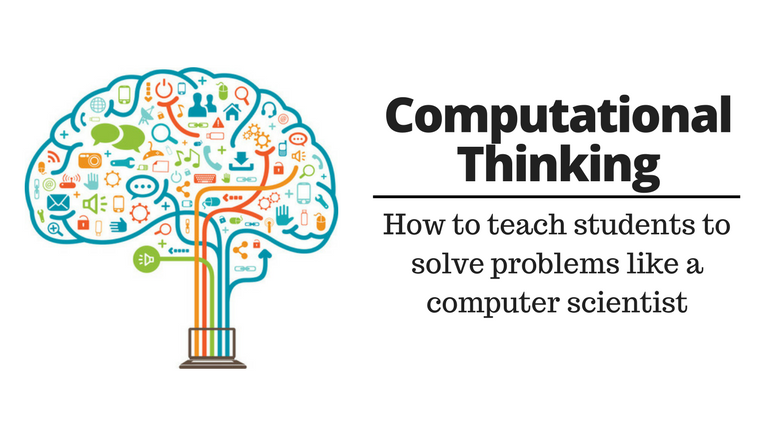
With each subject we learn, we also learn a different way of approaching problems.
Studying English, we learn to look for the subtext, what lies below the obvious. In Math, we learn to rationally break down problems. In Social Studies, we learn to make connections between a collection of situations and events.
Each and every one of these disciplines is important in deepening our critical thinking abilities.
But one subject that offers even more exceptional value for brain development is that of coding.
Through understanding the language of computers and how they work, students can develop what is called ‘Computational Thinking’.
Computational thinking is a collection of skills that derive from the nature of computation that is useful in solving challenging problems. These include many soft skills we are used to talking about such as teamwork, creativity, and communication skills, but they also include specific computational practices such as algorithmic and efficient thinking.
As a teacher, the thought of trying to incorporate all of these intertwined skills into one’s lessons can be intimidating, to say the least. Luckily, teaching students to code implicitly teaches helps develop many of these skill sets.
Read on to find out more information about the elements of computational thinking and how their development can benefit students in the long run.
Logical Thinking
Logical thinking means paying attention to causes and effects to identify why something is the way it is. When learning to code, students are bound to have outcomes that are not what they anticipated or hoped for.
Logical thinking will allow them to backtrack and look at the evidence to identify the root of the problem so they can resolve it. In the professional world, logical thinking will help students think critically and practically about what caused an undesired outcome so that they can address it, instead of giving up or jumping to conclusions.
Algorithmic Thinking
Algorithmic thinking involves developing a set of rules or steps that would allow you to solve a problem every time it occurs, instead of having to solve each problem on a case-by-case basis.
As students learn to code, they will begin to identify patterns in the problems they encounter and can start to develop algorithms for how to address similar types of problems. This is akin to how doctor’s develop rules for diagnosing specific diseases based on the pattern of symptoms.
Efficient Thinking
In our world today we value the ability to do work well, but also the ability to do it quickly. Efficient thinking aims to find a solution using minimal time and resources.
Students will practice this skill through computer programming as they look for shortcuts that help them get to a final product more quickly. Imagine how important efficient thinking is in the fast paced business sectors such as investments and stock trading.
Scientific Thinking
Scientific thinking involves testing out different ideas and options until a solution is arrived at. In computer programming, as with many things in life, there is no one right way to arrive at a solution and even if you’ve found the answer, there are often opportunities to improve the process.
Coding will help students persevere through rounds of trial and error to get the best solution in the most efficient way. Whether they’re working as actual scientists or not, this skill will help student methodically address any problem they encounter in their professional lives.
Innovative Thinking
Innovative thinking relies heavily on creativity as students develop new ways to solve problems. As students build code from scratch they will likely find ways to approach tasks that have not been explicitly taught to them. From lawyers to architects, to nearly every profession in between, innovative thinking will help students shine in their respective fields.
Apart from learning how to code (which is a valuable skill set in itself), students who study computer programming will gradually develop and practice these computational thinking skills which they’ll be able to apply to problems in whichever professional field they choose down the road.



Leave a Reply